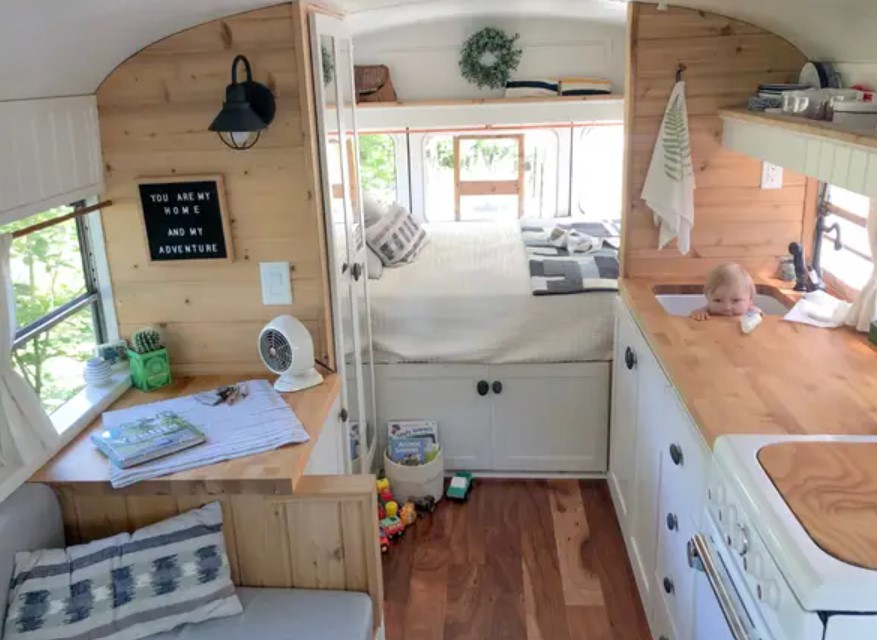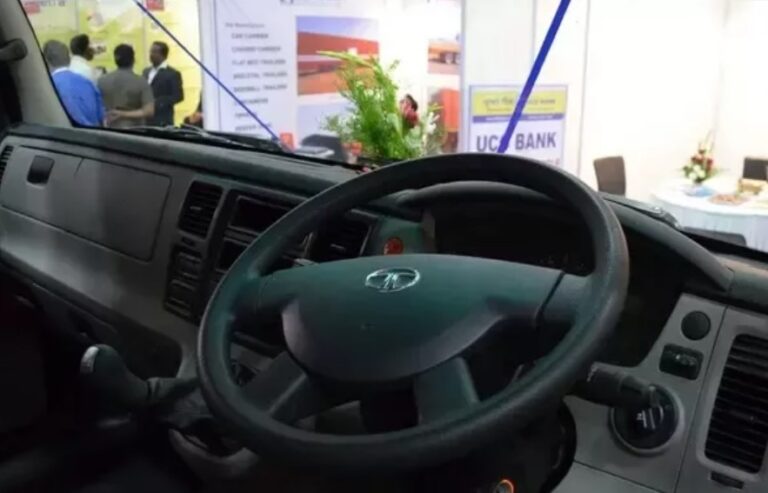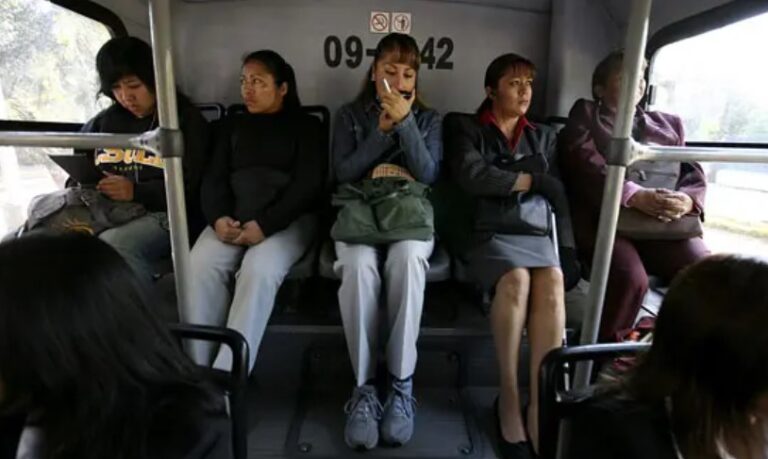Is It Cheaper To Convert A Bus Into An RV? Answered
In this article, we’ll explain Is It Cheaper To Convert A Bus Into An RV? Embarking on the journey of converting a bus into an RV can be an exciting adventure. It’s a unique blend of customization, cost-saving, and the thrill of creating something truly personal. This article delves into the practicalities and financial aspects of such a conversion. We will explore if it’s cheaper to convert a bus into an RV, considering various factors influencing the overall cost.
Key Takeaways
- Cost Comparison: Conversion vs. Buying New
- DIY vs. Professional Conversion: Impact on Budget
- Hidden Costs: What to Expect
- Time Investment: A Crucial Factor
- Long-term Value: Assessing the Worth
Is It Cheaper To Convert A Bus Into An RV?
Yes, generally, it is cheaper to convert a bus into an RV than to purchase a new RV. However, the cost-effectiveness depends on several factors, including the type of bus, the extent of the conversion, and whether you do it yourself or hire professionals.

Cost Analysis: Bus Conversion vs. New RV Purchase
Converting a bus into an RV can be a cost-effective solution for many. The initial purchase price of a used bus is typically much lower than that of a new RV.
However, the costs of conversion can vary widely. A basic DIY conversion might cost a few thousand dollars, while a professional, high-end conversion could run into tens of thousands.
DIY vs. Professional: A Financial Perspective
DIY conversions can significantly reduce costs if you have the necessary skills. Labor costs are one of the most substantial expenses in a professional conversion, which can be avoided in a DIY project. However, a lack of expertise can lead to costly mistakes, potentially making a professional conversion more economical in the long run.
Understanding the Costs Involved
Initial Purchase and Modification Costs
The initial cost of buying a bus and the necessary materials for conversion are the most apparent expenses. Prices of used buses vary based on size, age, and condition. The cost of materials and tools can also add up, especially for high-quality or specialized items.
Hidden Costs: What to Expect?
There are often hidden costs in converting a bus into an RV. These can include unforeseen repairs, updates to meet legal requirements for RVs, and the cost of tools or equipment you may need to purchase or rent.
Time Investment and Its Value
Time as a Crucial Factor in Conversion
Time investment is a significant factor when considering a bus-to-RV conversion. A DIY project can take several months or even years to complete, depending on the complexity of the conversion and the amount of time you can dedicate to it.
Balancing Time and Cost
For some, the time investment is part of the appeal, offering a sense of accomplishment and a personalized end product. However, for others, the time required can be a deterrent, especially if it means extended periods without a usable RV.
Long-term Value and Sustainability

Assessing the Worth of a Converted Bus RV
Converted bus RVs can offer excellent long-term value. They are often more robust and customizable than standard RVs, potentially leading to a longer lifespan and greater personal satisfaction.
Sustainability and Customization
Converting a bus into an RV can be a more sustainable choice, as it repurposes an existing vehicle. The ability to customize the layout and features to suit your specific needs and style is a significant advantage over purchasing a pre-built RV.
Legal Considerations and Safety
There are specific legal requirements for converting a bus into an RV, including safety standards, registration, and insurance. These requirements can vary by location and must be carefully considered to ensure compliance.
Safety Concerns and Precautions
Safety is paramount in any vehicle conversion. This includes proper installation of electrical, plumbing, and gas systems, as well as ensuring structural integrity and roadworthiness.
Is It Cheaper To Convert A Bus Or Buy An RV?
When deciding between converting a bus and buying an RV, cost is a major consideration. Generally, converting a bus can be cheaper than purchasing a new RV. The initial purchase price of a used bus is significantly lower than that of a new RV.

For example, a used school bus can be bought for a few thousand dollars, whereas a new RV might cost upwards of $50,000 or more. However, the final cost of a bus conversion depends on various factors like the quality of materials used, the complexity of the design, and whether the work is done professionally or DIY.
A basic DIY conversion might cost as little as $10,000 to $20,000, while a professional conversion can easily reach $30,000 or more. In contrast, a new RV comes fully equipped and ready to use but at a higher price point.
How Much Does It Cost To Convert A Bus Into A Motorhome?
The cost to convert a bus into a motorhome varies widely based on several factors. A basic DIY conversion where most of the work is done by the owner can range between $10,000 and $30,000.
This includes the cost of the bus, which can be anywhere from $3,000 to $7,000 for a used school bus, and the materials and appliances needed for the conversion.

On the other hand, a professional conversion can cost much more, ranging from $30,000 to $100,000 or even higher, depending on the level of customization and luxury.
Key cost factors include the bus’s condition, the complexity of the layout, the quality of materials and appliances, and the inclusion of advanced systems like solar power or high-end electronics. It’s important to note that while DIY conversions are cheaper, they require a significant time investment and a certain level of skill.
Are Bus Conversions Safer Than RVs?
Safety in bus conversions versus standard RVs is a complex topic. Buses, especially school buses, are designed with safety in mind. They are built to withstand harsh conditions and are structurally robust, offering a solid foundation for an RV conversion.
Their sturdy construction often includes reinforced steel frames and a design that’s meant to protect passengers in various types of collisions. In contrast, traditional RVs, particularly Class A motorhomes, while designed for comfort and amenities, may not have the same level of structural integrity as buses.
However, the safety of a bus conversion largely depends on how well the conversion is done. A poorly executed DIY conversion can lead to safety hazards, particularly with electrical and gas systems.
It’s crucial to follow proper guidelines and possibly consult professionals when installing such systems. Moreover, the overall safety of a converted bus also depends on regular maintenance and inspections, just like any other vehicle.
Conclusion
In conclusion, converting a bus into an RV can indeed be cheaper than buying a new RV, but it’s essential to consider all factors. The cost-effectiveness depends on the type of bus, the extent of the conversion, and whether it’s a DIY project or professionally done.
The satisfaction of building a personalized RV, coupled with potential long-term value and sustainability, makes this a worthy venture for many.
However, it’s crucial to be aware of the hidden costs, time investment, legalities, and safety aspects involved. Ultimately, a bus conversion can be a cost-effective and fulfilling project if approached with thorough planning and realistic expectations.
Frequently Asked Questions
Can I insure my converted bus as an RV?
Yes, but it’s important to find an insurance company that covers converted buses. You’ll need to provide documentation of the conversion process, and the vehicle must meet specific criteria to qualify as an RV for insurance purposes.
How do I ensure my converted bus RV is environmentally friendly?
Use sustainable materials, incorporate renewable energy sources like solar panels, and install water-saving features. Choosing eco-friendly appliances and materials can make your conversion more sustainable.
What are the maintenance requirements for a converted bus RV?
Maintenance requirements include regular engine and vehicle maintenance, similar to other large vehicles, and upkeep of the living quarters. Converted bus RVs might have unique maintenance needs due to custom features.
What are some common challenges in converting a bus into an RV?
Challenges include budget management, ensuring the structural integrity of the bus, installing electrical and plumbing systems correctly, and adhering to legal and safety standards. Also, customizing the interior for living comfortably in a small space can be challenging.

Welcome to the exhilarating world of Matt Rex, a professional car racer turned renowned vehicle enthusiast. Immerse yourself in his captivating blog as he shares heart-pounding adventures, expert reviews, and valuable insights on cars, trucks, jets, and more. Fuel your passion for speed and discover the beauty of vehicles through Matt’s engaging stories and meticulous expertise. Join the ever-growing community of enthusiasts who find inspiration and expert advice in Matt Rex’s blog—a digital hub where the thrill of speed meets the pursuit of knowledge.



![Changing Title From Bus To Van In New Jersey [Explained]](https://www.turbochaos.com/wp-content/uploads/2024/01/Changing-Title-From-Bus-To-Van-In-New-Jersey-768x669.jpg)



